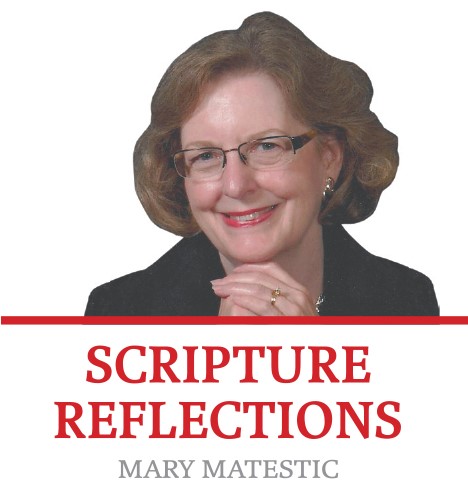Scripture Reflections, Sept. 12, 2021
Sept. 12, 2021
24th Sunday of Ordinary Time
Isaiah 50:5-9a
James 2:14-18
Mark 8:27-35
The Olympic Games in Tokyo brought home to the world the struggles athletes endure, with a special emphasis on mental health. Simone Biles, the American gymnast, came to the games tethered to great expectations of winning gold; but instead, she pulled out of most of the competition because, as she said, “My mental was not there.” Former gold medalist Michael Phelps made his appearance and talked about his own mental health struggles. His mantra: “It’s OK not to be OK.” But it was the story of Molly Seidel, the young women’s marathon bronze medalist from Wisconsin, that caught my attention.
In her personal interviews, Seidel admitted that she struggled with OCD and eating disorders. She checked herself into a behavioral health hospital to help manage her mental frailties. One day, her mother said to her, “I don’t care about Molly the runner. I care about Molly the person.” Molly admitted that was a turning point, urging Molly to find her way to healing and perhaps eventually back to what she loved: running.
There are expectations in life, but then again there are realities. Listening to great athletes own their vulnerability not only put them in the arena of being human but opened doors for others to understand the pressure they feel, both personal and public.
In the Gospel for this weekend, we will see the upending of the Jewish people’s expectations as to who and what the Messiah is and what the reality of God’s plan is. Jesus’ dilemma is to try to communicate this to his followers in a way they would understand. For what we learned from our Olympic friends, standing on the podium as a winner is not all that it seems. There is great suffering involved as well.
At the heart of the Gospel is the question: “Who do you say that I am?” Thus far in Mark’s Gospel Jesus has referred to himself as bridegroom of God’s people (2:19), Lord of the Sabbath (2:28), physician (2:17) and founder of the new Israel. (3:14) But, he has also met challenging resistance. Mark drops hints about the identity of Jesus; but until this moment in Caesarea Philippi, a place of pagan cult worship, when Jesus gathers his apostles and asks them, “Who do you say that I am?”, they wander in obscurity.
Underneath that historical reality lies the expectations of the Jewish people who are the apple of God’s eye. Though they anticipated a new Davidic king, a warrior who would expel the Romans and establish the independence of Israel, they knew it was far too late for such a dream. Yet many held to it. Others believed the Messiah would be a superhuman person who would usher in peace and prosperity, building a privileged political Kingdom.
No one thought the Messiah would be a suffering servant. No one thought the Messiah would give his back to those who would beat him and endure the buffets and the spitting, the disgrace that Isaiah the prophet foresaw. No one thought the Messiah would ride into Jerusalem on a donkey. They expected him to ride in on a war horse.
Peter answered Jesus’ question, “You are the Christ!” I’m certain Jesus’ eyes lit up at his response. In fact, Jesus realized that Peter’s response came from God, the Father. But the Messiah that Peter expected was not the Messiah that God had in mind. For immediately after the Petrine response, Jesus laid out the bare facts: that the Son of Man would suffer greatly, be rejected by all the chief priests and elders and be killed. Still, there is that line of victory that seems to get lost in the violent forecast: “(But the Son of Man will) rise after three days.”
Peter protested because his expectations were dashed. Peter wanted the podium sans suffering. Peter wanted the victory without the bloodshed, the rejection and defeat. In one moment, Peter was the insightful spokesman for the divine heart. In another moment, he became the adversary to God’s mighty plan.
What about us? How do we answer the question of Jesus’ identity in our own lives? I suppose that at each season of our lives, we respond differently.
Jesus’ identity reveals our own identity. St. Francis of Assisi repeatedly prayed the prayer: “Who are you, Lord? And who am I?” St. Augustine, too, prayed “Lord, that I might know myself more, so that I might know you more!” Both echoed the deep longing for a greater encounter with the Lord. Our prayer must be the same. For in knowing ourselves better, we know God better.
The exposure of our Herculean athletes to their own fragility enlightens a competitive culture. The podium comes with a price.
In the end, Peter and the others “got it.” The victory of the Resurrection emerged from the crown of suffering. There is no medal, but even greater: the treasure of knowing the Risen Lord.
But we have this treasure in jars of clay to show that this all-surpassing power is from God and not from us. 2 Corinthians 4:7

